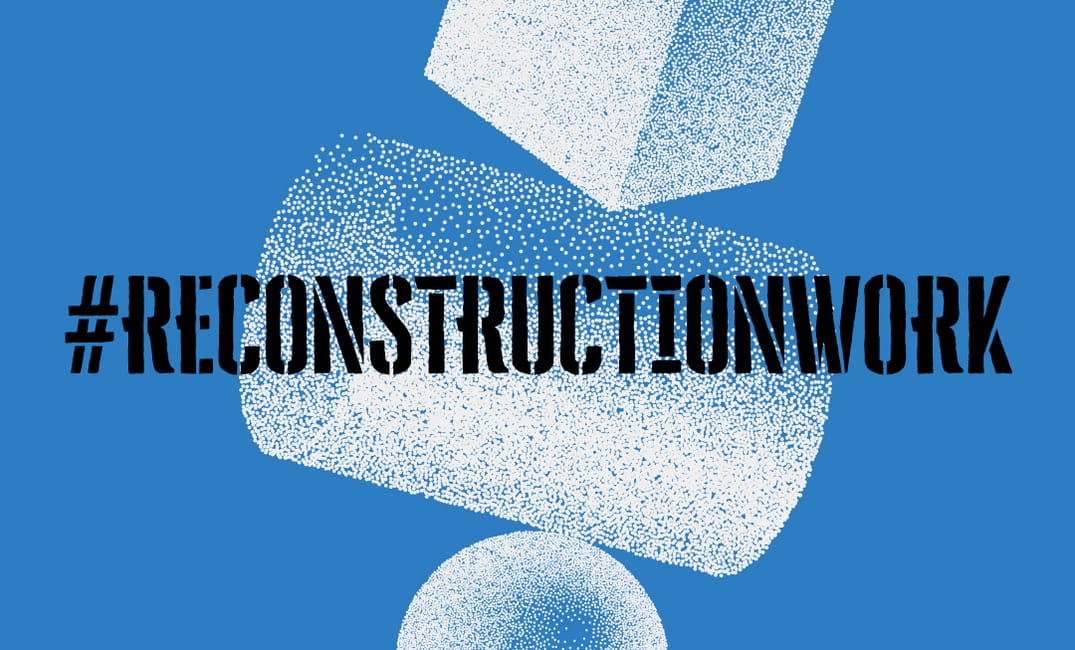As part of The Stuart Hall Foundation’s new #reconstructionwork programme they are hosting a series of online one-to-one conversations.
Bringing together writers, artists and activists, the conversations will consider how we can build a better society in response to the Coronavirus crisis and the Black Lives Matter protests worldwide.
In the second live event of the series, Amina Gichinga will be chatting to David Lammy, Labour MP for Tottenham. We sat down to catch up with Amina, to find out more about her, what she thinks about cancel culture, how to be a good ally and what young people can be doing to reconstruct a better world.
Hi Amina! Tell us a little about yourself and what you do.
I am a community organiser, I currently do this with London Renters Union. Prior to that I ran as a candidate for the Greater London Assembly in the 2016 elections. I did this with a party called “Take Back the City” with a manifesto based on participatory politics, a different approach to the ones we’re used to seeing in party politics.
We did poetry on buses to talk about the housing crisis, we ran public forums outside Stratford station asking the public what community means to them and what would improve their lives and enable them to flourish. It was an experiment in participatory politics- at the time we were talking about abolishing the police- something that’s entering mainstream conversations now.
Since then, Parliamentary politics has kind of by passed me now; I flirted with it briefly but have now decided to use my energy on building people power at the grassroots instead.

Young people are known for “cancelling” individuals or organisations they don’t fundamentally agree with (Rapper Wiley is a recent example). What are your thoughts around the idea of “cancel culture” this idea that cancelling people has got out of control?
People who are calling out oppression as “cancel culture” detract from the real issues that young people are trying to grapple with right now. Young people want an end to homophobia, or racism or sexism etc. On social media you sometimes lack nuance in an argument- Instagram can be quite helpful- but nevertheless people in really powerful positions make out young people are trying to censor them, when actually they’re the ones with power. With their power they can get away with oppressive behaviour. If you do abusive stuff or are displaying oppressive actions you should deal with the consequences of that. I’m glad some people are at threat of losing their jobs when they are racist.
When it comes to organising spaces, I think that we need to enable survivors or people facing harm to be heard and not to be quashed. That might mean “cancelling” people but we need to be proactive in our grassroots spaces of activism so those who’ve been on the receiving end of oppression have a voice. Using social media to call people out is often a last resort for those people, it can be sensitive sometimes for people to do that in a public way. It can be a really brave and courageous thing to do.
Following on from the theme of social media, how can young people be good allies to causes?
I think it has to be done within a frame of changing the system. For example, many white people are only just waking up to the concept of racism- for quite a long time they haven’t been turning up to protests or using their voices. It can be draining to have to explain on demand what life is like for you.
Being a good ally is about educating yourself, not putting it on those oppressed to educate you. It is also about going one step further and looking at yourself. Think about what you’re going to do and make a switch in terms of your behaviour. Other than putting money towards stuff, what is an organising space you can join, or how can you contribute to systemic change? Maybe it’s writing to an MP, or bolstering and platforming unheard voices. Look to yourself. If you do trip up by saying something “wrong” that’s ok- but action is crucial.

Allyship is sometimes viewed as something we do as individuals, which doesn’t necessarily get to the root causes of the problem. We need to unpick stuff by ourselves but we also need to organise together to create system change. I think we need to be anti-capitalist, anti-imperialist, anti-colonialist, there needs to be individual work done but then we also need to organise together and do the ting.
Haaa, “just do the ting” is a good way of putting it. For The Stuart Hall Foundation, Reconstruction is the theme, thinking about how we can create a better society. What’s your advice on what young people can be doing to reconstruct the world we’re living in, even when we don’t believe much in political institutions themselves?
I agree with a lot of young people who don’t see that real change is going to happen in Westminster. Part of what we need to do is organise at grassroots; part of the feeling there is feeling powerless. But we have power in numbers, when we strike or protest with clear demands and negotiate we can win.
I think that young people need to think about what world they want to create and envision those steps. Take your own passions and apply it to that. I’m a musician and I think singing is a great vehicle for politics. Music is human connect. In my organising I love to sing and that joy is key to making change happen. It makes us feel stronger and more united. Maybe it’s film people want to create- document local leaders or people, what is happening, the issues. There’s so much young people can do that isn’t in traditional politics.
We also need a sense of collectivism as part of a broader movement, not just individuals. It’s important that we build bonds of solidarity and uplift each other to speak and not rely on one or two leaders. We need many- think about how you can support your friends in their issues too. Create the alternative.
The Stuart Hall Foundation’s #reconstructionwork event will be live streamed online at 6pm BST, Friday 31st July.
Please register via Zoom (link below) to watch the conversation and submit questions to David and Amina. Alternatively, you can view the livestream feed on their Facebook page or YouTube channel.
You can submit questions in advance by emailing info@stuarthallfoundation.org.
This is a free event. Instead of charging for tickets, the Stuart Hall Foundation are encouraging people to donate to the Foundation to help towards costs associated with the #reconstructionwork programme activity.

